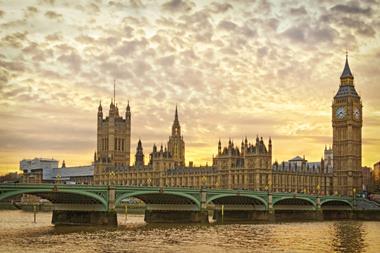M&G Investments and Amber Infrastructure have been appointed to manage the UK government’s £400m (€456m) Digital Infrastructure Investment Fund (DIIF).
The creation of the fund was announced last year by the government to improve the country’s digital connectivity.
M&G said its infrastructure debt business would manage investments alongside its infrastructure subsidiary Infracapital.
Infracapital is teaming up with merchant bank Cameron Barney, which specialises in financing internet infrastructure, to launch a dedicated platform for DIIF called Digital Infrastructure Investment Partners.
M&G’s infrastructure debt business, which manages over £10bn of debt investments in public and private telecoms and cable companies, will make funds available to businesses in order to roll out new networks across the UK.
Amber Infrastructure, meanwhile, said it has been appointed manager of the National Digital Infrastructure Fund (NDIF), a co-investment vehicle that forms part of DIIF.
Both M&G and Amber will invest in fibre broadband infrastructure in the UK on behalf of the fund. Amber expects to make loans, including subordinated loans, but might also make equity investments.
The UK Treasury will commit £400m to the fund over four years.
Amber Infrastructure said at least £150m will be allocated to NDIF, which will be “match-funded by the private sector”.
International Public Partnerships (INPP), a FTSE 250 infrastructure investment company to which Amber is investment adviser, said it will commit up to £45m to NDIF.
Rupert Dorey, chairman of INPP, said the investment provided “an early entry point” to a new market for INPP.
“Fibre broadband connections are likely to become essential infrastructure assets in the future,” he said.
“INPP will once again benefit from first mover advantage, taking a strong defensive position in an attractive asset class.”
Earlier this year, Infracapital invested in Gigaclear, one of the main providers of ultrafast broadband to rural areas in the UK.
In the latest editon of IPE Real estate magazine, Ed Clarke, co-founder and director of Infracapital, said: “Essentially, the copper infrastructure that has underpinned telecommunications so far in the UK, in the form of the aged BT Openreach, is last century’s technology, and though it has been squeezed and eked out to try to meet this increasing demand, it struggles to cope.”
Giles Frost, CEO of Amber Infrastructure, said: “We see full-fibre-to-the-home broadband connectivity as becoming part of the core infrastructure of the future – just as gas and electricity distribution are today.”












